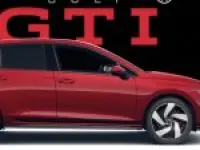
Mahindra, Volkswagen To Collaborate On Electric Vehicles
In a significant development, Mahindra & Mahindra (M&M) has entered advanced negotiations with Volkswagen to utilise crucial electric vehicle (EV) components from the German automaker”s open platform for electric vehicles, known as the MEB.
MEB Components for Mahindra:
The Volkswagen Group has confirmed that they are in advanced discussions with Mahindra, considering them as an important cooperation partner. Mahindra”s interest lies in accessing key MEB components, specifically the e-drive and unified cells, to integrate into their own EV models.
Value Chain Integration with PowerCo:
Volkswagen is actively working on integrating the development and production of battery cells into its value chain through a project called PowerCo. This strategic move aims to retain a significant portion of the value creation for fully electric vehicles within the company itself. The primary goal is to achieve lower battery costs, an essential factor in making electric mobility more accessible to a wider audience.
Key Cost Reduction Strategies:
Volkswagen is implementing several key strategies to reduce battery costs by up to 50% compared to the first-generation MEB. These include the development of unified cells by PowerCo, the establishment of standardised cell factories, and the introduction of innovations like dry coating and low-cost cell chemistry that avoids the use of cobalt and nickel. These initiatives are aimed at making electric mobility more affordable and sustainable for a broader segment of the population.
Ongoing Alliance Between the Two Companies:
This latest collaboration builds upon the initial announcement made in 2022 when Mahindra and Volkswagen expressed their intention to explore an alliance focused on accelerating electrification efforts in India. As part of this alliance, Mahindra planned to source MEB electric components for its EVs.
Mahindra”s EV Lineup:
Under the INGLO platform for EVs, Mahindra is set to introduce five new electric vehicles: Born Electric (BE), XUV.e, THAR.e, SCORPIO.e, and BOLERO.e. Recently, the company showcased the THAR EV concept in Cape Town, South Africa, on August 15. These EVs will be manufactured at Mahindra”s Chakan plant, which has a production capacity of up to two lakh vehicle units. Full-scale manufacturing of EVs is expected to occur between 2027 and 2029.
Future Expansion Plans:
Mahindra has also outlined its intentions for the second phase of expansion, during which the company plans to further extend its electric vehicle offerings.
Mahindra”s collaboration with Volkswagen for access to key EV components is a significant step toward advancing electrification in India and making electric mobility more affordable and sustainable for a broader range of consumers. This strategic partnership holds promise for the future of electric mobility in the region.













